Alper produces polyester flexible heaters, electric and electronic circuits for the most different applications in several sectors. Among them, also the challenging automotive industry, to be meant in its widest scope, addressed by the company with a broad range of customized solutions where stand out those purposely studied for battery packs.
The mobility world is decisively looking at an electric-speaking future. In this context – no matter whether hybrid vehicles, as combination of endothermic and electric motors, or fully electric are at stake – battery packs undoubtedly play a protagonist role. An ambitious challenge accepted also by Alper, flexible heating specialist able to design and manufacture ultra-flat polyester resistances precisely used to make battery packs reliable and performing in time.
«It is known – the owner and general manager, Guido Alessi, explains – that the most diffused and used typologies of Lithium batteries for these applications, outside determinate temperature ranges, cannot always maintain optimal efficiencies.

In temperature conditions below zero, for instance, they can feature some criticalities: to slow down the times needed for their recharge, to consume more energy, to supply less powerful pickups, and therefore to provide minor efficiency. Not fortuitously, for a long time now all manufacturers have attentively considered the so-called Thermal Management, fundamental issue to maintain battery packs at optimal temperatures to provide the best operational conditions».
Technical divisions, research and development departments of battery manufacturers, or directly automotive companies and electric vehicle producers, try then to solve such problems by implementing some devices.
«Concerning the solution of criticalities caused by cold and too low temperatures –Alessi adds – it is common practice to provide for the integration of adequate resistances directly among the cells of battery packs, or as external barrier that heats the chassis».
Another interesting solution allows instead exploiting the already existing liquid cooling system, suitable for regulating the functional heating of the battery at steady-state.
«In this case –Alessi highlights – it is possible to exploit the plates of the liquid cooling system, applying suitable heating elements and a simple 3-way valve. This allows by-passing the radiator entrusted with the standard, to exploit this mini-circuit that becomes the heating source for batteries».
Flexible polyester heating elements for electric batteries
More in detail, Alper ultra-flat resistances allow minimizing the necessary thickness of the heating element (from a minimum of 0.2 mm).
Usable in several application fields, like the broad diversified ambit of e-mobility, such resistances are produced by silk-screen printing, with an additive manufacturing technology, initially depositing silver tracks, for the electric current transport, and afterwards a layer of conductive and heating pastes.
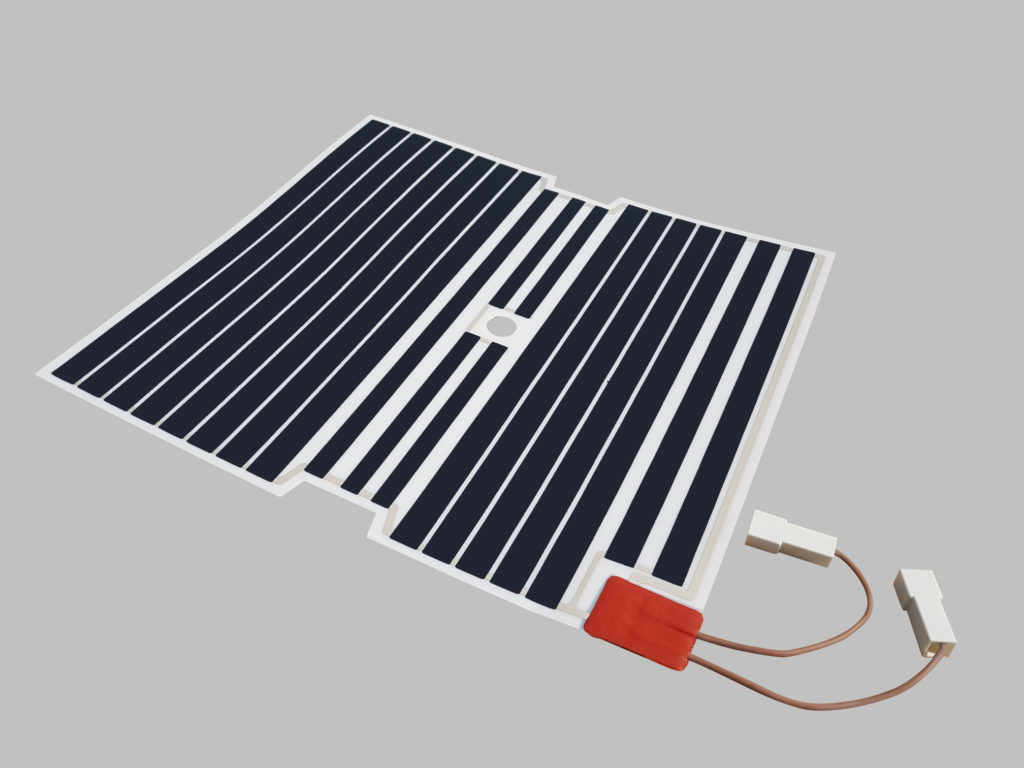
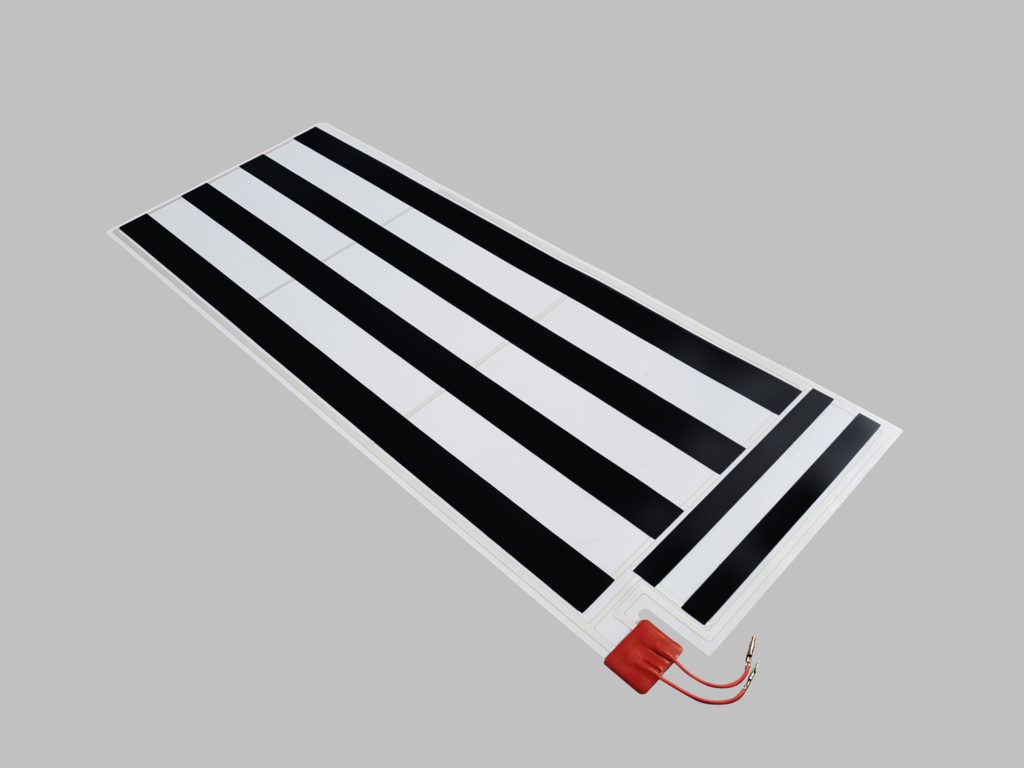
Similar to etched-foils, but much more reliable in terms of flexibility, they assure the highest efficiency levels at the service of low-temperature heat production. The constant research of new heating formulations has allowed the company to make the production capacity and the development of new design products, on customer’s precise specification, very versatile. The technology, unique of its kind, permits to reduce the costs of implementation and of eventual small modifications of the demanded powers (with a significant range of +/-20%) just modifying the composition of the conductive paste (unfeasible thing with etched-foil technology). All that allows implementing electric resistances with very high ohmic value, hardly feasible thing with other alternative technologies on films or with heating cables.
«Peculiarities and features –Alessi specifies – from which can benefit the battery packs designed for cars, trains, bicycles, motorcycles and any other electric vehicle, also used in industrial ambit such as forklifts or in shipbuilding. As many are the operational benefits for the same battery packs deriving from the use of ultra-flat flexible heating elements we design and manufacture: extension of the service life of the battery itself; increment of the good operation also at low temperature; faster recharge times, high temperature uniformity».
The added-value of the additive manufacturing technology
The use of highly thermo-stabilized polyester supports, properly treated for the adhesion of conductive silver and carbon pastes, confers high mechanical resistance and equal reliability in time to Alper heating elements (protected by dielectric films that allow passing the electric rigidity tests exceeding 3,750 V).
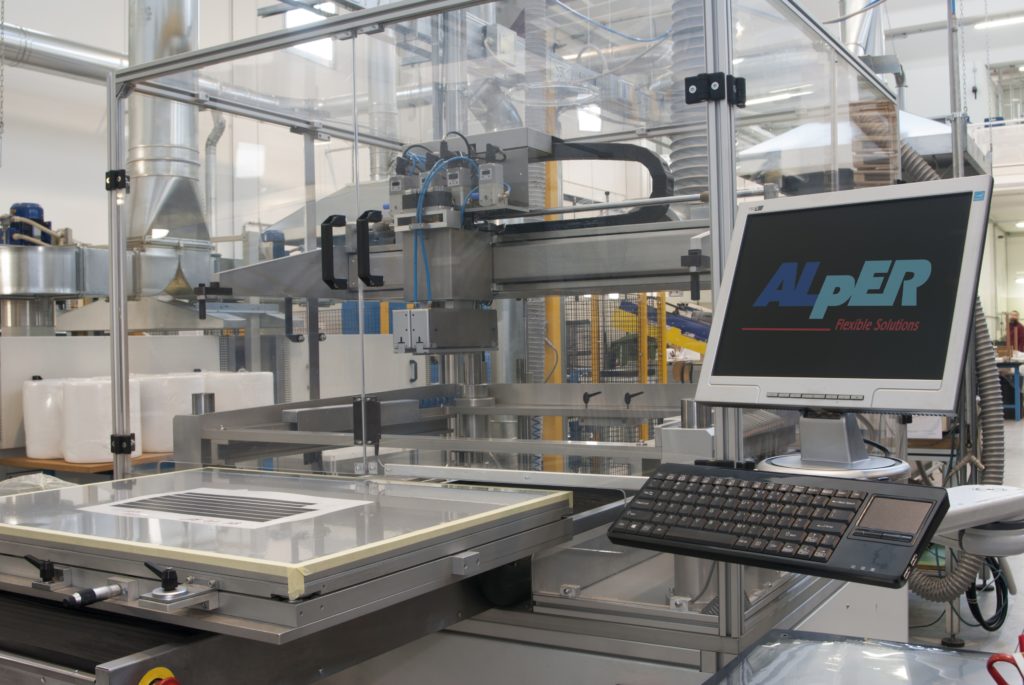
«Conductive pastes – specifies Alessi – as well as the conductive and resistive part that generates heat, are in-house studied, formulated and implemented, upon single specification and according to the application. An additive manufacturing technology, instead of subtractive, which then does not use chemical processes. In other words, our processes do not produce noxious industrial wastes, and even less polluting or toxic wastes to be disposed, with an undeniable environmental and ecologic benefit».
The heating element is printed on a very thin and flexible support and therefore it can be positioned in very narrow spaces, adapting it to curve surfaces, too. Various shapes of the element are possible, as it can have also holes or slots for applications needing them.
Worth highlighting that Alper carbon heating elements are made with very ductile conductive pastes, then they always assure great reliability even subjecting the heating circuit to constant movements and bending. Moreover, according to their composition, they allow silk-screen printing resistances that are not constant when the temperature changes but instead increase hand in hand with its rise.
«In practice –Alessi explains– this results in a decrease of the absorbed power proportionally to the high temperature level reached. This feature is very important from many points of view, safety included: resistances of this kind are in fact prearranged to reach the correct thermal balance with the environment».
On demand, Alper can supply a broad range of accessories, like for instance NTC probes, thermocouples, pt100, pt1000, fixed and adjustable thermostats and pockets for probe housing.
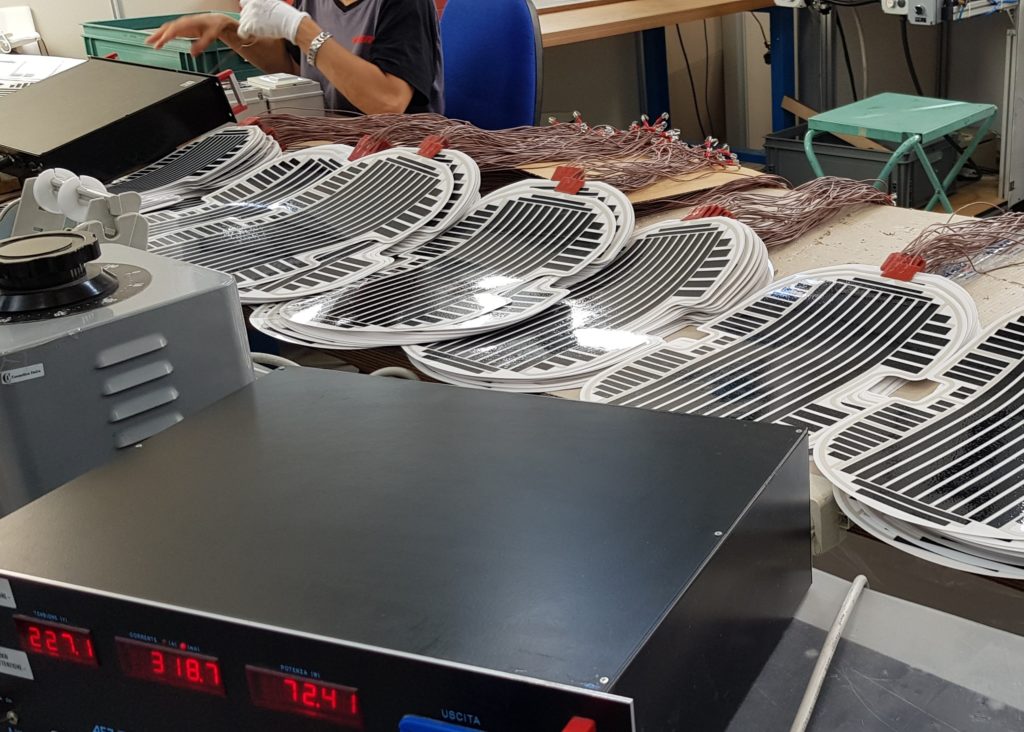
«Still for the automotive industry –Alessi adds– we produce also silk-screen printed antennas for the reception of digital radio stations, i.e. DAB, generally integrated in spoilers, in bumpers and wheel arcs of modern cars. Moreover, our ultra-flat carbon resistances are suitable for heating rear-view mirrors, some inner parts of cars, like seats, mats, roof as radiant heating of the car interior, arm rests and so on».
Total 100% quality
ISO 9001 and ISO 45001 certified, since its establishment conceived and organized as structure oriented to the process efficiency and the product quality, Alper has always paid great attention to its development cycle, granted by a skilled team. A group today consisting of twenty workers whose activity exploits advanced managerial systems and software, from design to production, from testing to logistics.
“The manufacturing process – ends Alessi – is constantly managed, coordinated and monitored in each phase, assuring high quality. The operational course provides for a total 100% control and not for a sampling test codification”.
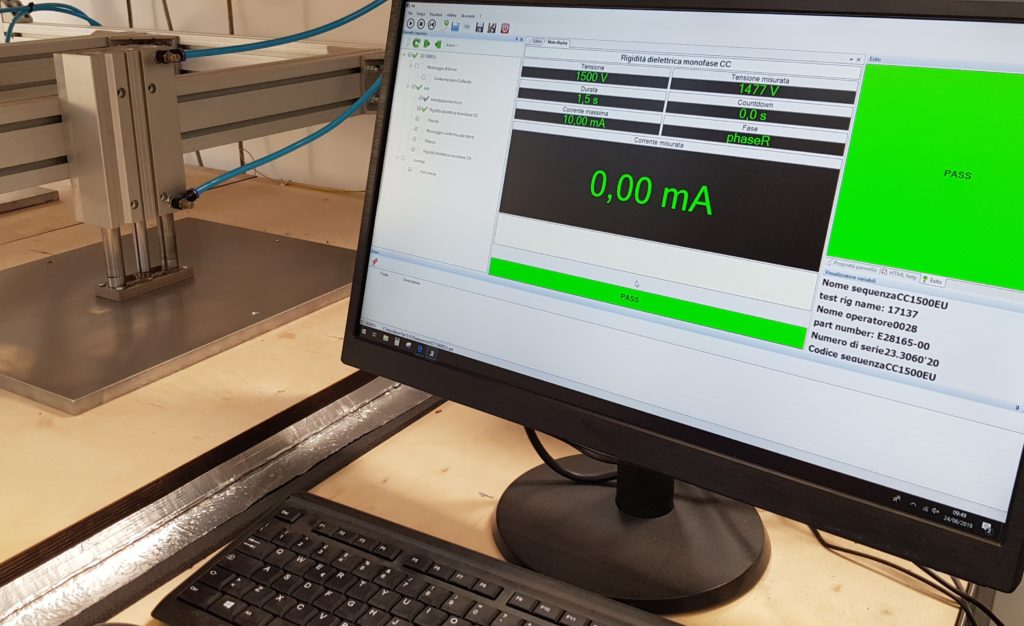
Uncompromised total quality, then, combined with certain production times. All that confers the company great efficiency and precision in deliveries, appreciated by direct and indirect customers, spread worldwide. Concerning this, it is worth underlining that Alper, with the precise target of providing higher and higher level service, for a couple of years now has been able to certify its products also as required by UL regulations for the American market.
The company in brief
Established in 1992 as Research & Development Centre of Carbon conductive pastes with PTC effect, Alper developed, first in the world, a range of polyester heating elements with high power density, which has allowed its customers to be the first entering the USA market with innovative products. Building on the gained know-how, astride 2000s the company starts diversifying its product range. A winning choice that determines a constant growth up to being today, in Italy, a forefront manufacturing reality that produces flexible heating elements, made of polyester and other materials, for the most different applications and markets, with over half million units produced yearly.

A company that still today, in Italy, is unique of its kind, with a proposal of ultra-flat heating elements that allows satisfying the most different technological, productive and qualitative requirements. In addition to the household appliance industry, among the main supplied sectors stand out the general industry, Ho.Re.Ca, building and the rising automotive, for a turnover amounting to about 2.5 million Euros, half of which directly addressed abroad (from Germany to Spain, from England to France), considering that also 80% of the remaining part goes beyond the borders.





